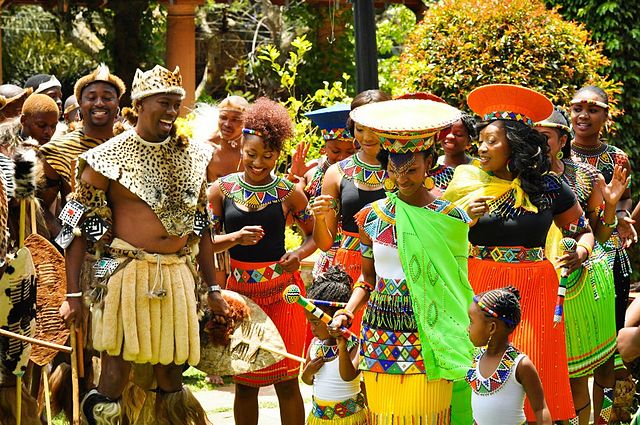The African wedding dowry tradition is one of those things that are not just about to end.
Dowry is and remains a huge part of the African culture that the 21st century hasn’t changed even an inch.
The deeply-rooted tradition, however, varies from one African community to another but the concept remains unchanged.
This article explains why African wedding dowry remains a strong point in the continent’s culture.
Table of Contents
What is a Dowry in African Marriage?
African Wedding Dowry or the bride price is a long-standing custom necessitating multiple visits to the home and relatives of the bride.

A Kenya dowry ceremony known as ‘ruracio’. Photo/Pinterest
The dowry is usually a mandatory gift given/paid by the bridegroom. Paying the bride price is a longstanding practice in African communities that serves as a way for a suitor to establish his suitability for the bride, as well as his ability to financially support her.
Usually, cattle are at the heart of it all. Tradition in many African countries demands cattle among other things as bride price.
How Much is the Bride Price in Africa?
Every ethnic group has its customs for how much they’re willing to pay as bride price in accordance with the African wedding dowry tradition.
Some ethnic groups send kola nuts, beverages, and cigarettes while others may give a goat. The bride’s family, on the other hand, is not known to be overly demanding – although some are.
The bride price is always negotiable. The groom’s family negotiates a suitable price for the bride with her family. It is an interesting affair because it takes very persuasive men to get ‘a good deal’ as weird as it sounds.
Moreover, the African wedding dowry has different names depending on where it is but the tradition remains the same.
For instance, in Kenya, it is known as dowry while in South Africa it is ‘lobola’. In Zimbabwe, people call it ‘roora’.
Who Pays for the Wedding in Africa?
The bride – a man who intends to make a certain woman his wife and reports to his family – pays the dowry. This is customary in the African wedding dowry.
It is so as a man need to prove that he is able to keep his woman as comfortable as life can get.
And, for decades, cattle in the traditional African setting remains a prime factor in dowry payment. Besides, it is a measure of wealth across many African communities.
In Kenya, for example, the culture is entrenched into the system and the mentioning of cows, sheep and goats is a common phenomenon during dowry negotiations.
This is a tradition practised all over Africa. It is what still holds the African wedding dowry ceremony.
But, some cultures have an intriguing set of beliefs regarding marriage, and dowry.
While cows take centre stage in dowry negotiations, the Pokot, Maasai, Turkana and Somali tribes in Kenya surprise you. They are predominantly, pastoralist communities with a unique culture.
How Much is a Kenyan Dowry?
In Kenya’s pastoralist communities, African wedding dowry is all about cattle.
Here, the exchange of dozens of cattle is the language of the game. The more cows, camels and goats you have, the better the chances you have to get yourself a fine girl to warm your bed.
The groom presents his bid for marriage to the bride’s family and negotiations commence. The two families agree on the number of cows, goats or camels to be offered to the bride’s family as a sign of goodwill enshrined in the customary traditions among these communities.
If the bride is not able to give a particular number of animals to the bride’s family, he is allowed to start a family with his chosen woman on the condition that he pays off the “debt” over time.

A Somali dowry ceremony. Photo/Hivisasa
Once all this is settled, the young woman gets rights to land from her husband and milk from the cows in her husband’s homestead. In these tribes, rich men are allowed to marry more than one wife.
Their wealth is measured in terms of the number of cattle they own and the size of land they own. These are crucial yardsticks because each of the wives must have some level of control over the milk from animals and land where they practice small scale farming or grazing land.
In these communities where traditions govern the way of life, divorces are uncommon. The ‘open-minded’ nature of customs held by pastoralism communities, among them allowing polygamy suppress the rate of divorce.
You barely hear about divorced men who are below 40.








